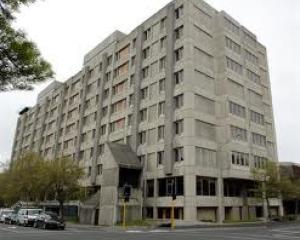New Zealand's proposed four-year bowel cancer screening pilot could be called off early if participation is much lower than expected.
This is shown in the Ministry of Health's request for proposal (RFP) document issued late in December for organisations interested in supplying the testing kits for the programme.
The ministry advises that respondents should note that while the pilot is expected to last four years, the contract might be terminated earlier if the pilot "ends for some reason", such as the uptake for the pilot being much lower than expected.
The pilot will cover an eligible population of 135,000 aged 50-74 in the Waitemata District Health Board area, and is expected to attract 60% participation.
The document shows that in the first two years it is expected to lead to a cancer diagnosis for between 200 and 400 people.
This week, the ministry found out how many organisations were interested in supplying the Immunochemical faecal occult blood test (Ifobt) kits which will be used by participants in their homes and then mailed to the laboratory. However, a spokeswoman said the number interested could not be released, citing confidentiality, and advising no information would be available until the contract was awarded.
The Otago Daily Times has taken issue with this stance, asking what confidentiality would be breached and pointing out that if there was no interest shown, then presumably that would have the potential to affect the future of the pilot.
The RFP document shows a contract is expected to be signed in May, allowing the pilot to start in October.
The Ministry of Health estimates that in two years 78,570 people will return the kits.
There will be two screening cycles so that each eligible participant will receive two tests over four years.
Interested suppliers are advised they would be required to provide a total of about 270,000 kits, 67,500 for each of the four years of the pilot.
The ministry estimates only 3% of those invited to participate would decline to take part after an initial offer by letter, but shows it anticipates about 40% of the total would then be sent kits and not return them.
The information in the document shows the ministry estimates the number of tests likely to be positive to be between 4% and 8 % of those returned.
People with these results will be offered colonoscopies or alternative investigations and 90% are expected to take up those offers.
Between 566 and 1131 are expected to be found to have polyps (pre-cancerous growths which could be removed during a colonoscopy).
Detailed requirements for the kits are spelled out in the document, including the need for it to be easy for participants to collect the required samples and safe packaging which meets New Zealand Post regulations.
Among the specifications are that the test must be able to maintain stable samples over a minimum of 10 days between the time the sample is collected and is analysed. It must also be able to remain stable at temperatures up to 24degC in summer.




